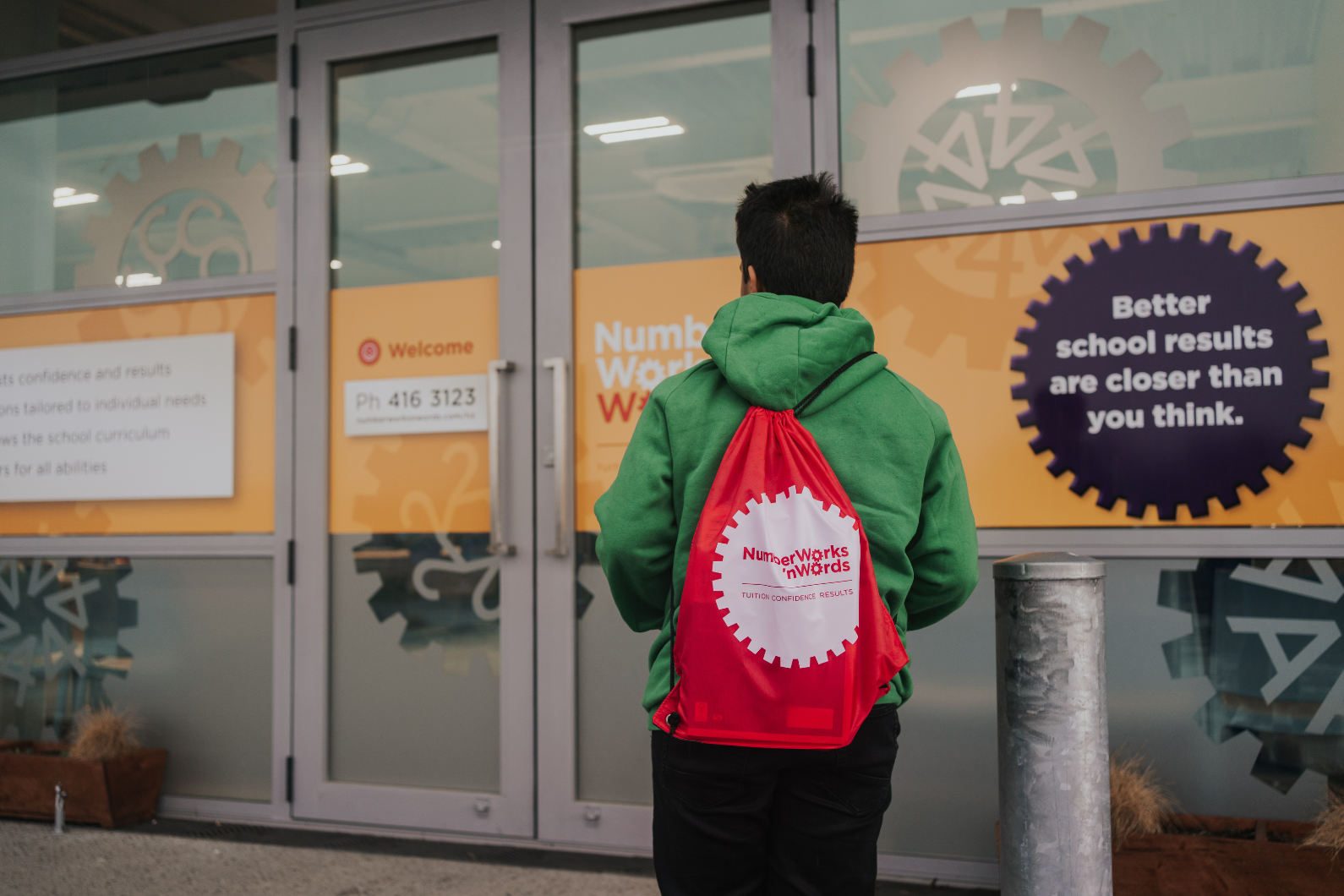Benefits of A Daily Routine for Children
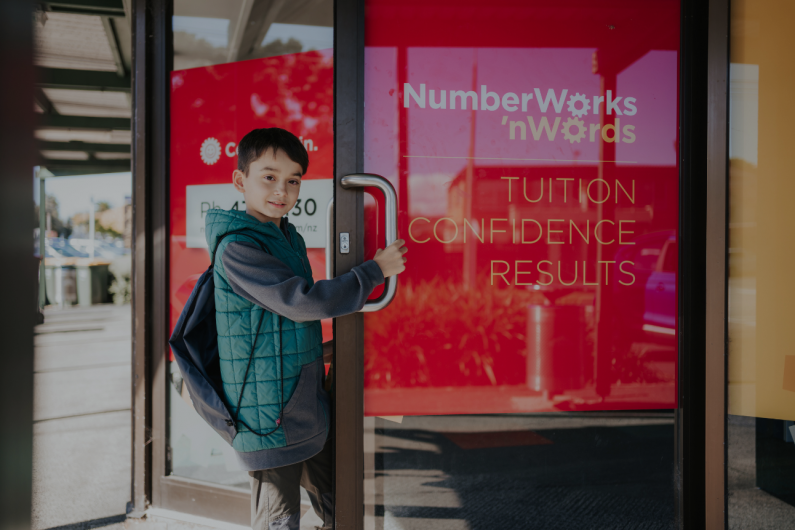
As parents, caregivers, or teachers, we all want to help kids succeed academically, socially, and emotionally. While there are many ways to set kids up for success, one of the simplest yet most effective tools is a daily routine. Whether your child is 5 or 16, having a regular routine can make a world of difference, not just in terms of getting things done, but also in supporting their overall well-being.
Let’s take a closer look at the benefits of establishing a daily routine for children, both in their academic life and beyond.
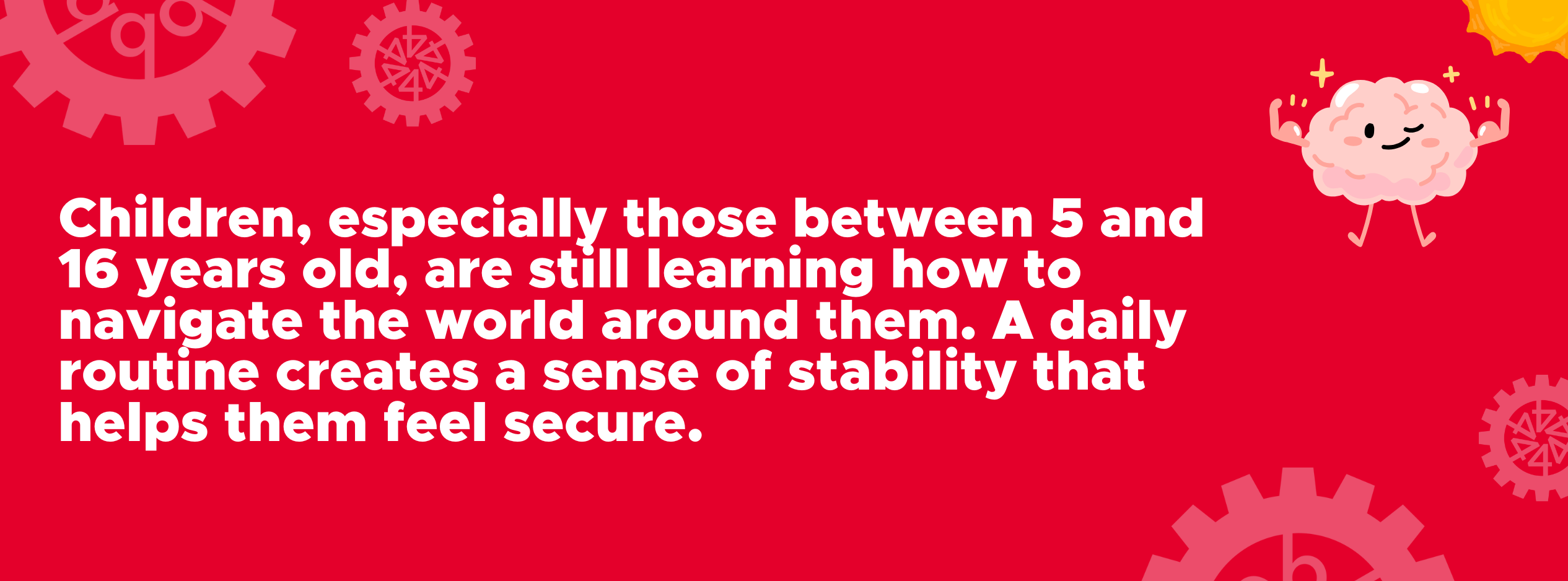
Provides Stability and Security
Children, especially those between 5 and 16 years old, are still learning how to navigate the world around them. A daily routine creates a sense of stability that helps them feel secure. When kids know what’s going to happen next, it reduces anxiety and stress, making them feel more in control of their day.
Think about it: for a younger child, knowing that after breakfast comes playtime and then school or study time offers them a sense of comfort and predictability. The same goes for older kids, who often have busy schedules packed with homework, extracurricular activities, and social events. A routine helps them manage it all with less chaos and more confidence.
Enhances Time Management Skills
One of the greatest benefits of a daily routine is that it helps children learn how to manage their time more effectively. From the very beginning, having a set time for breakfast, schoolwork, and play teaches kids the value of using their time wisely. The structure helps them understand that there's a time for everything, and they can use that time to focus on what's at hand.
For younger children, this might look like learning how to transition from one activity to the next without getting distracted. For older kids, a daily routine can help them balance homework, activities, and personal time more efficiently. When kids have set times for different tasks, they become better at focusing on the task at hand, whether it’s reading, doing homework, or even having some downtime. As they grow, these time-management skills will be essential for managing more complex schedules.
Boosts Academic Focus and Performance
The connection between routine and academic success is undeniable. When children follow a daily routine, they can focus better during study time, complete homework more efficiently, and even retain information more effectively. The brain loves predictability, and when kids know when it’s time to study, take a break, or tackle a project, they are more likely to be productive and perform well.
A routine also encourages regular study habits, which are crucial for long-term academic success. Instead of cramming for tests or leaving assignments to the last minute, children with a set routine will be in the habit of completing homework and reviewing material consistently, which leads to better understanding and retention. These routines also allow for breaks, which are essential for boosting concentration and preventing burnout.
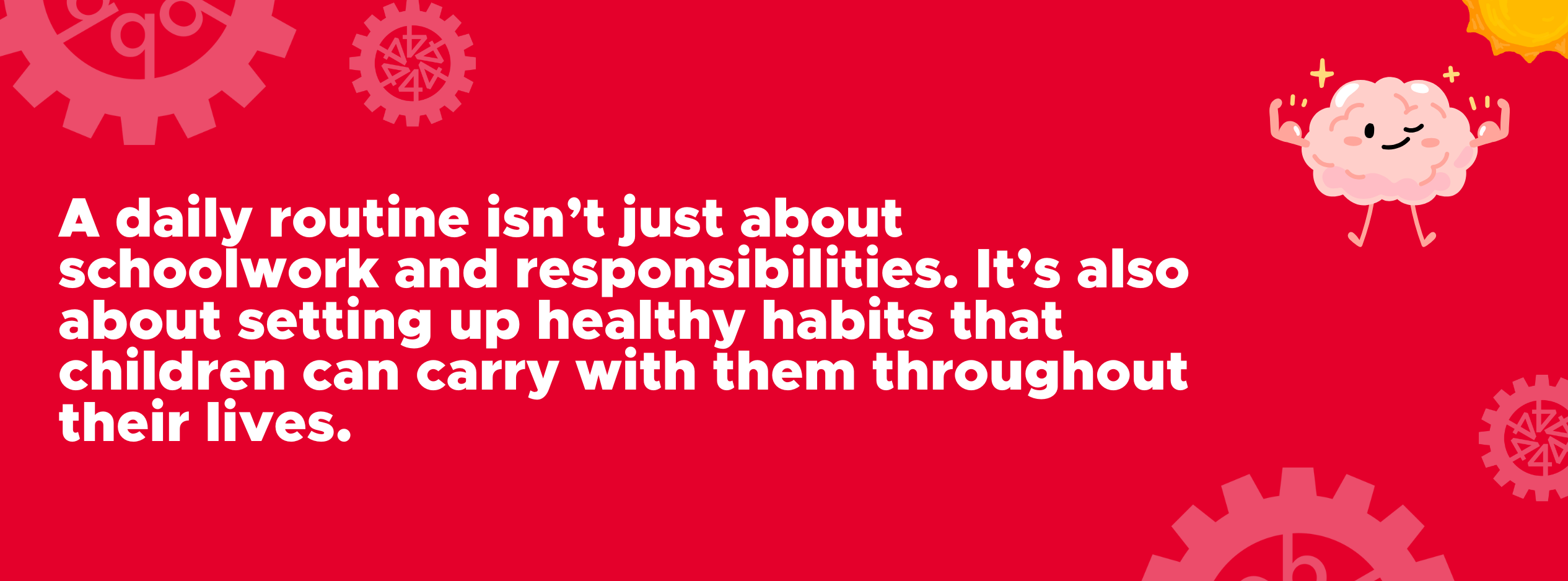
Fosters Healthy Habits
A daily routine isn’t just about schoolwork and responsibilities - it’s also about setting up healthy habits that children can carry with them throughout their lives. Regular bedtimes, healthy meals, and physical activity all fit naturally into a daily routine, helping children stay physically and mentally healthy.
For example, if kids know that part of their routine involves winding down for bed at the same time each night, they are more likely to get the right amount of sleep. Adequate sleep is crucial for their physical growth, brain development, and emotional well-being. Similarly, when exercise is incorporated into their routine, whether it’s playing sports, going for a walk, or dancing around the living room, it becomes part of their lifestyle, boosting their mood and energy levels.
The great thing about a daily routine is that it makes these healthy habits easier to maintain. Instead of leaving it to chance, kids know that part of their day will always include some time for self-care and well-being.
Encourages Responsibility and Accountability
By following a daily routine, kids learn responsibility. They begin to understand the importance of completing tasks at the right time and taking ownership of their actions. For younger children, this might mean getting themselves ready for school in the morning or cleaning up after playtime. As they grow older, kids can take on more responsibility, such as managing their own homework schedule or preparing for the next day’s activities.
A routine also helps kids understand the cause-and-effect relationship between their actions and the outcomes. If they follow their routine, they can see the benefits, like having more time to relax or feeling prepared for school the next day. If they don’t, they might feel rushed or stressed out. These experiences teach them important lessons about accountability and self-regulation, which will help them in school and in life.
Reduces Stress and Anxiety
Routine can be a stress-buster for kids. When children know exactly what’s expected of them each day, they feel less overwhelmed by uncertainty. Whether it’s a 5-year-old who’s learning how to transition from one activity to the next or a 15-year-old managing schoolwork, a daily routine helps reduce stress by bringing predictability and control into their lives.
Think about how chaotic mornings can feel when there’s no clear plan—rushing to get ready, searching for lost items, and trying to figure out what comes next. A solid morning routine can make this much smoother and more pleasant. The same goes for after-school or evening routines. Knowing that there’s a set time for relaxation, study, and family time helps kids feel grounded and less anxious about the day’s demands.
Strengthens Social and Family Bonds
A daily routine doesn’t just help kids with their own individual tasks - it also gives them opportunities to connect with others. For younger children, having a routine that includes family time, such as eating dinner together or having storytime before bed, helps build strong social and emotional bonds. As kids grow older, routines can still create opportunities for connection, whether it’s having regular check-ins with parents or setting aside time to hang out with siblings or friends.
For kids in the 5-16 age range, having a routine helps them maintain a sense of balance between their social life and other activities. By ensuring that their routine includes time for family and friends, children develop stronger communication skills and deeper emotional connections with those around them.
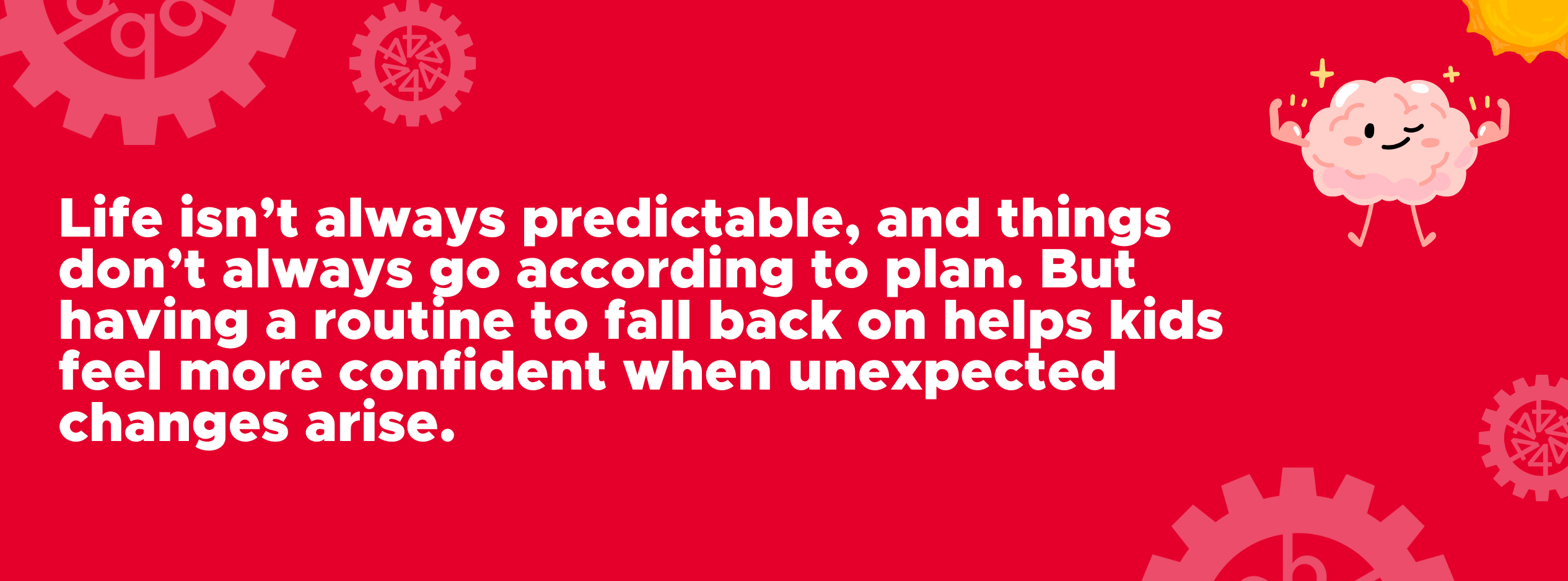
Allows for Flexibility within Structure
While routines provide much-needed structure, they don’t have to be rigid. One of the greatest benefits of a daily routine is that it allows for flexibility. Life isn’t always predictable, and things don’t always go according to plan. But having a routine to fall back on helps kids feel more confident when unexpected changes arise.
For instance, if there’s a school event or a family celebration, kids with a set routine can adjust more easily, knowing that the basic structure of their day still exists. The key is consistency—having certain anchor points (like a bedtime or a set study time) while leaving room for flexibility.
Conclusion
The benefits of a daily routine for children are undeniable. A routine helps kids feel secure, teaches them important life skills like time management and responsibility, and supports their overall well-being. Whether it’s helping with schoolwork, encouraging healthy habits, or reducing stress, a daily routine is one of the simplest and most effective ways to set kids up for success.
If you're aiming to establish a consistent study or academic routine for your child, enrolling them in NumberWorks’nWords could be an excellent first step. Our dedicated tutors will help keep your child on track and engaged. By scheduling regular sessions at the same time and day each week, you'll create a routine your child can look forward to, while also supporting their academic success. If this sounds like a good fit, book a FREE, no-obligation learning assessment today.




